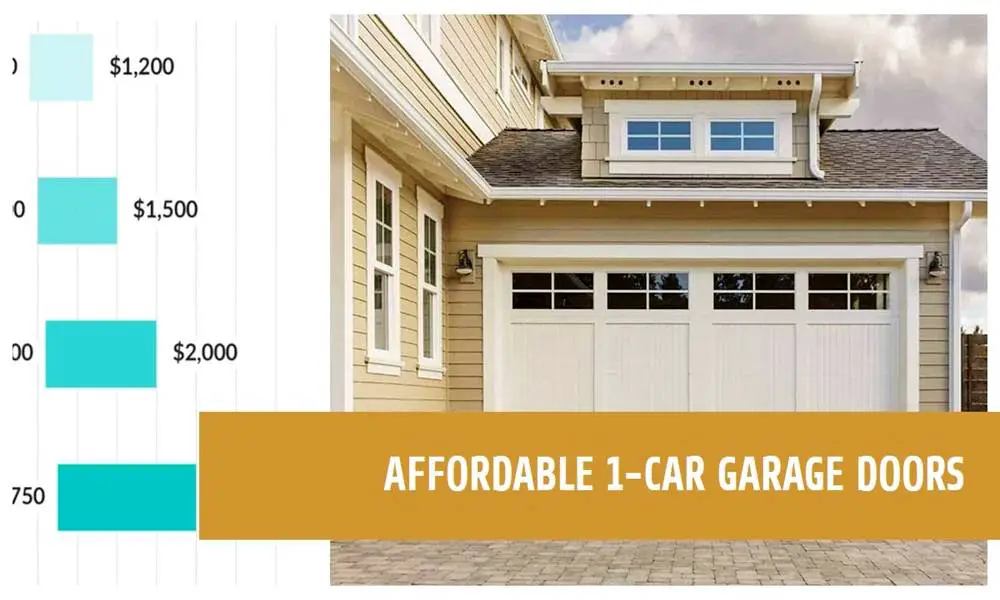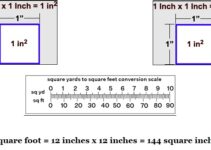1 Car Garage Door Cost

When considering your home, the garage door serves not just as a practical component but also as an aesthetic feature. Whether you’re constructing a new garage or upgrading an existing one, comprehending the associated cost factors is essential. A 1-car garage door is a common fixture in numerous homes, and its price can fluctuate depending on various significant elements.
The cost data presented in this article was compiled from several reputable sources, including This Old House, Home Depot, and Lowe’s.
You need to know this:
Factors Affecting Cost
The cost of a 1-car garage door is influenced by various factors, including the material chosen, specific door features, the installation process, location, brand reputation, and any special add-on features.
Cost Breakdown by Material Type
- Steel: Steel garage doors are the most economical option, typically ranging from $600 to $1,500. While they offer durability, they may lack insulation and curb appeal compared to other materials.
- Wood: Wooden garage doors are pricier, ranging from $1,500 to $3,500. However, they provide excellent insulation and aesthetics, though they require more maintenance to upkeep their appearance.
- Composite: Combining the durability of steel with the aesthetics of wood, composite doors range from $2,500 to $5,000. They offer good insulation and curb appeal but come at a higher price point.
- Glass/Aluminum: These doors offer a modern look with natural light penetration, but they can be quite expensive, ranging from $3,000 to $8,000. However, they may offer less insulation and require more maintenance.
Price Ranges for 1-Car Garage Doors
| Material | Price Range |
|---|---|
| Steel | $600 – $1,500 |
| Wood | $1,500 – $3,500 |
| Composite | $2,500 – $5,000 |
| Glass/Aluminum | $3,000 – $8,000 |
Impact of Door Features on Cost
- Panels: The number of panels and their design can affect the cost. Raised panels, for example, add a decorative touch but may increase the overall price.
- Windows: While windows add natural light and aesthetic appeal, they also bump up the cost and may compromise security.
- Insulation: Insulated doors provide better energy efficiency but come at a higher price point compared to non-insulated options.
- Color: Opting for custom colors over standard white may also increase the total cost of the garage door.
Additional Costs Associated with Installation
- Professional Installation: Hiring professionals for installation typically adds $150 to $300 to the total cost. While DIY installation is possible, it requires specific knowledge and tools.
- Removal of Old Door: Some companies may charge extra for removing and disposing of the old garage door.
Regional Variations in Cost
Labor costs and material availability can vary significantly depending on your location. Urban areas with higher living costs may have higher labor charges, while rural areas may have limited material options, potentially affecting prices.
Influence of Brand and Warranty
Opting for reputable brands with longer warranties may increase the initial cost of the garage door. However, the investment can provide peace of mind and potential long-term savings in maintenance and repairs.
Special Features and Their Cost Implications
Additional features such as smart openers, battery backups, and other technological advancements can add to the overall cost of the garage door but may offer convenience and enhanced functionality.
Conclusion
When considering the cost of a 1-car garage door, it’s essential to weigh the various factors involved, including material, door features, installation, location, brand reputation, and special add-on features. By understanding these factors, homeowners can make informed decisions that balance their budget with their preferences and needs.
FAQs
Are steel garage doors a good option for homeowners on a budget?
Yes, steel garage doors offer durability at a more affordable price point compared to other materials.
Do insulated garage doors really make a difference?
Yes, insulated garage doors can improve energy efficiency and help maintain a more comfortable temperature inside the garage.
Can I install a garage door myself to save money?
While DIY installation is possible, it’s essential to have the necessary knowledge and tools to ensure proper installation and safety.
What factors should I consider when choosing a garage door color?
Consider factors such as aesthetics, home exterior color scheme, and whether you prefer a custom color or standard options.
Are there any financing options available for purchasing a new garage door?
Many garage door companies offer financing plans to help homeowners manage the upfront cost of installation.


